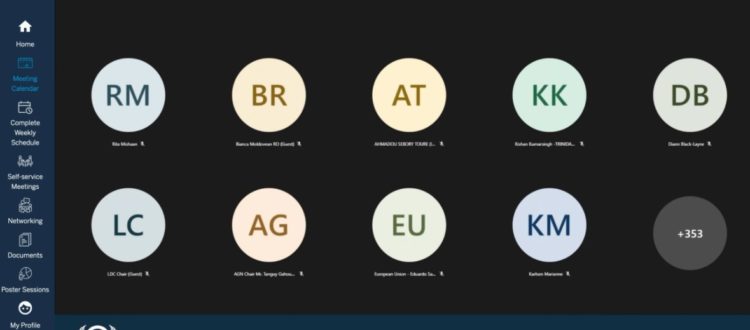With Week 2 approaching, deadlock on ambition must be broken
By Jacopo Bencini, ICN Policy Advisor
This article is part of ICN’s weekly report from the SB2021 meetings (UNFCCC SB52)
The first week of June 2021 has seen the comeback of climate negotiations, after a one-and-a-half-year break. These Subsidiary Bodies negotiations are unconventional: they’re held entirely online and will last three weeks rather than the usual two, to allow countries in different time zones to attend. From the start, it had been made clear that no decision would be reached during these sessions, instead deferred to the next in-person meetings in Milan and COP26 in Glasgow, but the spotlight is immediately back on the thorniest issues.
The many negotiation and information sessions deal with a wide range of Paris Agreement-related topics (thoroughly covered by Italian Climate Network’s team with articles and thematic insights). Still, it soon became apparent that the political debate would be heated when it came to those issues put ‘on hold’ in Madrid, issues that still need to be wrapped up before COP26 and before Paris Agreement can be fully carried through. They are: implementing the measures set out by Article 6 of the Agreement on cooperation among countries for mitigation and adaptation purposes, transparency in reporting, common NDC time frames, climate finance.
The implementation of Article 6 has proven to be yet again a divisive and at times controversial matter. In this week’s informal sessions, we have seen Parties even more entrenched in well-established positions on some Article’s paragraphs (and related sub-measures), especially with regard to the meaning of ambition, setting up ad hoc instruments and mechanisms, implementing non-market approaches.
‘Ambition’ is perhaps an overused word among insiders in negotiations and climate policies. When it comes to the details, though, we see how countries can stretch its definition to suit their needs and national interest. Article 6, for one, makes specific reference both to mitigation (mainly) and adaptation actions: developing countries and those whose economies are most dependent on fossil fuel trade have stressed, once again, the need to flesh out Article 6 in a balanced way. It shouldn’t be limited to mitigation, they argue, instead taking into account everyone’s adaptation needs but also expertise and financial capacity. Various delegates have thereby questioned the very definition of ‘ambition’, more or less for self-interest. The Arab States even wondered whether the text should include different definitions of the term based on financial and scientific capacity, according to the principle of common but differentiated responsibilities. In response, delegates from Small Island States – though sensitive to Article 6 and adaptation issues – have appealed once again to the Parties’ good will to quickly reduce emissions, even without reaching consensus on the implementation of Article 6. What’s more, the overall interpretation of Article 6 was questioned by Bolivia. Article 6 – they pointed out – has now become synonymous with ‘market mechanisms’ or ‘carbon markets’. However, ‘market’ is nowhere to be found in the original text, because the intention was to only include voluntary cooperation between government bodies or, at best, non-market mechanisms (Article 6.8). No less importantly, Parties’ opinions again differed strongly during another session (on June 4th) on whether to migrate some elements of the pre-existing Climate Development Mechanism (CDM) – born under the Kyoto Protocol – to the Paris Agreement, notably Article 6.4 (a new mechanism to cooperate on mitigation efforts). There is no consensus on when and how this transition should occur – or even if at all, according to some countries. It’s unlikely that it will be reached in the coming days. This matter, however, needs to be followed closely.
In the first week of negotiations, consultations are back, with very little progress. The online format isn’t helping: some countries have voiced their unwillingness to attend not only informal sessions – which they fear might be recorded by observers – but also the “informal-informal” sessions often suggested by facilitators. Delegates would traditionally convene such sessions in the halls of the COP’s venue, but here they would need to be held in virtual rooms and different time zones. Because of these shortcomings – whether or not they’re played upon – some countries end up slowing down this process. Process that, though it won’t lead to an immediate decision by design, could really move consultations forward on the road to COP26.

